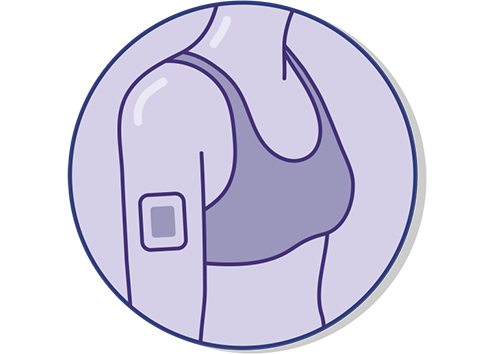The patch contains two hormones – oestrogen and progestogen. It is just like the combined pill but instead of swallowing a tablet, you stick a patch to your skin, usually your upper arm.
It is over 99% effective, as long as you use it as advised. Women usually get a regular period, but you can control your periods, choosing to miss a period if you want to. Some people can’t use the patch because of medical conditions.

How does the patch work?
Hormones are contained within the patch are absorbed through the skin.
These hormones work in three ways:
- Stopping ovulation. Ovulation is when your ovaries release an egg each month.
- Thickening the mucus that comes from your cervix.
- Making the lining of your womb thinner.
You can access some good information about the contraceptive patch from the link below.
- What are the advantages to having the patch?
- You don’t have to remember it every day.
- It is absorbed through the skin so it’s not affected by vomiting or diarrhoea.
- It usually makes your bleeds regular, lighter and less painful.
- It may help with premenstrual symptoms.
- It improves acne in some women.
- What are the disadvantages to having the patch?
- Depending on where you put it, it may be seen by others
- It can cause skin irritation in some women
- You may get some temporary side effects or irregular bleeding
- The patch doesn’t protect you from sexually transmitted infections
- For some people, the patch can cause some serious side effects (see risks)
- What are the risks of having the patch?
For most women, the benefits of the patch far outweigh the risks. We will ask you some questions to make sure it is safe for you. The patch can slightly increase your risk of a thrombosis (blood clot). Research suggests there is a small increase in your risk of breast and cervical cancer.
- Where can I get the patch?
Because the patch is very expensive, not everyone can get it from Unity sexual health or its partner organisations. Women who have bowel problems causing diarrhoea, or those who can’t swallow a pill, may be considered. You are welcome to come and talk to us about it. If we can’t prescribe it for you, your GP may be able to.

